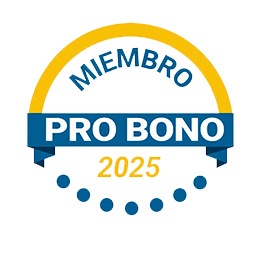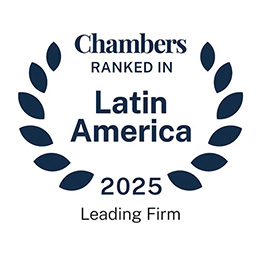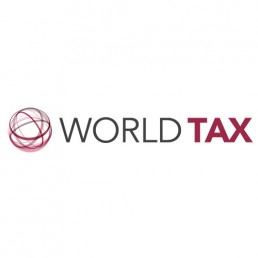The Firm
We are a full-service Law Firm assisting corporate clients with an innovative perspective and a focus on adding value in the matters that are entrusted upon us.
Our Firm intervenes in high complexity transactions and disputes, and we successfully overcome challenges by considering the best legal solution on a case-by-case basis.
We combine a detailed knowledge of local laws and markets, with a global outlook adapted to best-practice work standards applicable internationally, based upon excellent working relationships and partnerships with leading worldwide law firms.
Our Firm stands-out for client-service, partner-involvement, a dynamic and committed team of associates and a vision centered in the client’s business.
We succeed when our client’s goals are achieved in accordance with their expectations.







Practice Areas
MERGERS & ACQUISITIONS; COMPETITION / ANTITRUST
We advise on investment, partnership and corporate divestment operations.
LITIGATION, ARBITRATION AND INSOLVENCY
We advise on the resolution of disputes, insolvency proceedings and arbitration.
COMPLIANCE
We advice on regulatory and corporate compliance matters, supporting our clients in the design and strengthening of programs and procedures aimed at reducing risks and ensuring regulatory compliance.
ENERGY, NATURAL RESOURCES AND INFRASTRUCTURE
We advise on the structuring of energy and infrastructure projects as well in the acquisition and sale of companies and assets under such industries.
PUBLIC LAW
We advise on complex administrative law and in their relationship with governments and regulators.
LABOR & EMPLOYMENT
We provide corporate advice on all aspects of labor & employment law, legal assistance in highly complex administrative and judicial proceedings, internal investigations, due diligence, and international expatriation.

CORPORATE CRIMINAL LAW
We advise companies, executives, and employees on the prevention and resolution of complex criminal matters related to their business activities.
News
-
Promising Changes in Power Transmission Regulatory Framework
July 22, 2025Today, July 22nd, 2025, Resolution 311/2025 (“Resolution 311”) issued by the Secretary of Energy (“... -
Argentina's latest power market rule changes (Interview by BNamericas to our Partner Javier Constanzó)
July 18, 2025The following interview to our partner Javier Constanzó was published yesterday, July 17, 2025, in B... -
Reforms in the Electric Power and Natural Gas Sector
July 11, 2025On July 7, 2025, the Government of Argentina issued Decrees 450/2025, 451/2025, and 452/2025 ("Decre... -
Call for Bids for the Concession of the Eastern Section and the Connection Section of the Federal Concessions Network – ...
June 4, 2025On June 3rd, 2025, the Ministry of Economy issued Resolution N° 29/2025, launching the National and ... -
Argentina extends the Emergency in the Energy Sector
June 2, 2025On June 2nd, 2025, the Government of Argentina released Decree 370/2025 (“Decree 370”), that extends... -
New framework for power transmission system expansions
June 2, 2025On June 2, 2025, the Ministry of Economy published Resolution 715/2025 (the “Resolution 715”) which ... -
Argentina Ratifies the OECD Multilateral Instrument (MLI): Key Changes to Double Taxation Treaties
May 28, 2025On May 28, 2025, the National Executive Branch enacted and published Law No. 27,788 in the Official ... -
Privatization of Energía Argentina S.A. – Sale of shares in CITELEC
April 25, 2025On April 25, 2025, Decree No. 286/2025 (“Decree 286”) was published in the Official Gazette, authori... -
Privatization of Hydropower facilities
April 15, 2025On April 10, 2025, the Government of Argentina published Decree 263/2025 (“Decree 263”), which advan... -
Approval of LNG Export Procedure
April 8, 2025On April 4, 2025, the Secretary of Energy published Resolution 145/2025, which approved the Liquefie... -
Government moves forward with the privatization of Corredores Viales S.A.
February 18, 2025On February 17, 2025, the Government took a significant step towards the privatization of Corredores... -
Open Call for BESS and power generation “AlmaGBA”
February 18, 2025On February 17, 2025, the Secretary of Energy published Resolution 67/2025 (“Resolution 67”), initia... -
Privatization of Belgrano Cargas y Logística S.A.
February 12, 2025On February 10th, 2025, the National Government published Decree 67/2025 (“Decree 67”), authorizing ... -
Normalization of the Wholesale Electricity Market
January 31, 2025On January 29, 2025, CAMMESA published on its website complementary information to Resolution 21/202... -
Deregulation of Electric and Hybrid Electric Vehicles Charging Activity
January 30, 2025On January 29, 2025, the Secretary of Energy published Resolution 22/2025, abrogating Resolution 817... -
New measures for the normalization of the Electricity Market
January 29, 2025On January 28, 2025, the Secretary of Energy published Resolution 21/2025 (“Resolution 21”), which i... -
Foundations Law: Hydrocarbons and Natural Gas Regulation
December 3, 2024On November 29, 2024, the Government of Argentina released Decree 1057/2024 (“Decree 1057”), that re... -
Argentina extends the Emergency in the Energy Sector
November 21, 2024On November 20, 2024, the Government of Argentina released Decree 1023/2024 (“Decree 1023”), that ex... -
National Tax Authority Establishes Procedures To Adhere and Obtain Certain Benefits Under the Large Investments Incentiv...
October 25, 2024On October 23, 2024, General Resolutions No. 5589 and 5590 were published, whereby the National Tax ... -
Modifications to the Large Investments Incentive Regime and new implementation rules
October 24, 2024The following regulations were published on October 22, 2024: Decree 940/2024 (“Decree 940”), w... -
The Government of Argentina releases the implementation rules of the RIGI
August 28, 2024On August 23, 2024, the Government of Argentina published Decree 749/2024 (“Decree 749”) which conta... -
Foundations Law: Renegotiation of Public Contracts
August 14, 2024Scope: Public works and concession contracts entered prior to the new administration taking offi... -
Foundations Law: Regulation of Public Work Concessions, Infrastructure and Services
August 14, 2024Tenor of the concession: Concessions may be for a fixed or variable tenor, based on the required... -
Foundations Law: Private Initiative Regime
August 14, 2024Scope: The newly enacted Private Initiative Regime shall apply to public work contracts, public ... -
Regulation of Foundations Law: Government reorganization and Sale of state-owned companies
August 8, 2024On August 5, 2024, the Government released Decree 695/2024 (the “Decree 695”) that regulates Title I... -
Leonel Zanotto joins our Firm as Partner of the Tax Department
March 5, 2024We are pleased to announce the hiring of Leonel Zanotto, as Partner of our Firm. Leonel joins a... -
Updates to electricity spot prices
February 14, 2024On February 8, 2024, the Secretary of Energy issued Resolution SE No. 9/2024 ("Resolution 9"), which... -
Changes in the Electrical Power Transmission Grid Expansions Regulation
February 1, 2024On January 31, 2024, the National Electricity Regulatory Entity (in Spanish “Ente Nacional Regulador... -
Bill: “Foundations and Starting Points for the Freedom of the Argentineans”: Amendments to the Civil and Commercial Cod...
January 10, 2024The “Foundations and Starting Points for the Freedom of the Argentineans” Bill (the “Bill”), which w... -
Bill: “Foundations and Starting Points for the Freedom of the Argentineans” - Amendments to the General Companies Act...
January 10, 2024Following our previous publications about this topic (see link), we hereby inform briefly the main a... -
Omnibus Reform Bill: Modifications to Hydrocarbons and Natural Gas Regulatory Framework
January 10, 2024On December 27, 2023, Argentine President Javier Milei sent to the Congress an omnibus bill (the “Om... -
Derogation of Rural Lands Law and changes on Environmental Rules
January 8, 2024On December 21, 2023, President Javier Milei released Emergency Decree No. 70/2023 (“Decree 70”), th... -
National State reform adopted by President Javier Milei
January 2, 2024On December 21, 2023, President Javier Milei released Emergency Decree No. 70/2023 (the “Decree 70”)... -
Emergency Decree 70/2023 and the Energy Sector
December 29, 2023On December 21, 2023, President Javier Milei released Emergency Decree No. 70/2023 (“Decree 70”). De... -
President Javier Milei Omnibus Reform Bill
December 29, 2023On December 27, 2023, Argentine President Javier Milei sent to the Congress an omnibus reform propos... -
Argentina declares emergency in energy sector
December 19, 2023The recently elected Administration has declared the energy sector emergency. The measure was adopte... -
Javier Constanzó, new Partner of the Energy & Infrastructure Department
December 18, 2023We are pleased to announce the promotion of Senior Associate Javier Constanzó to the position of... -
Establishment of the Environmental Protocol for Massive Events
December 15, 2023On December 7, 2023, the Ministry of Environment and Sustainable Development published Resolution No... -
News in the hydrocarbons sector: The establishment of the National Program for the Measurement and Reduction of Fugitive...
December 11, 2023On December 1, 2023, the Secretary of Energy published Resolution 970/2023 (the “Resolution”) that e... -
The Secretary of Energy establishes new charges for large consumers
December 10, 2023On December 5, 2023, the Secretary of Energy published Resolution 976/2023 (“Resolution 976”), which... -
Relevant aspects on the Guidelines for the development of Environmental Impact Reports and Public Participation in Envir...
December 5, 2023On November 30, 2023, the Secretary of Climate Change, Sustainable Development and Innovation of the... -
Argentina’s National Strategy for the Use of Carbon Markets
November 21, 2023On November 14, 2023 the National Ministry of Environment and Sustainable Development published Reso... -
Argentina launches call for expressions of interest for energy storage proposals
November 9, 2023The Secretary of Energy has launched a call for expressions of interest for battery energy storage s... -
New option to offset penalties imposed by CAMMESA under PPAs through investments in new renewable power generation proje...
November 2, 2023On November 1st, 2023, the Secretary of Energy enacted Resolution 883/2023 (“Resolution 883”) which ... -
Argentine Government releases Hydrogen Guideline
September 27, 2023The Argentine Government has released the National Strategy for the Development of the Hydrogen Econ... -
Tax break for Renewable Power Generation Projects
September 4, 2023The Secretary of Energy has enacted Resolution 714/2023 (the “Resolution 714”), dated September 1, 2... -
Federal Mining Secretariat launches the "Federal Program for the Systematic Disclosure of Mining Activities (ProNDSAM)"
August 7, 2023On 08/07/23, Resolution 96/2023 (the "Resolution") was published in the Official Gazette, by which t... -
Argentine Government seeks bids for 3,000 MW new/revamped thermal facilities
July 31, 2023The Argentine Government announced on July 27, 2023, by Resolution No. 621/2023 of the Secretary of ... -
Relevant aspects of the National Energy Transition Plan to 2030 and the Guidelines and Scenarios for the Energy Transiti...
July 20, 2023Argentina has issued the National Energy Transition Plan to 2030 (“NETP 2030”) and the Guidelines an... -
Call for Expressions of Interest to Manage and Finance Extensions of Transmission Facilities
July 10, 2023The Secretary of Energy has launched a call for expressions of interest to manage and finance (in wh... -
Approval of the final text of the Contract for the Transportation of Natural Gas – President Néstor Kirchner Gas Pipelin...
June 27, 2023On June 26, 2023, Resolution No. 532/2023 of the National Energy Secretariat ("Resolution 532") was ... -
Electricity Transmission: Expansion of Existing Capacity. New Network Works and Associated Infrastructure
June 13, 2023On June 12, 2023, Resolution No. 507/2023 of the National Energy Secretary (‘Resolution 507’) was pu... -
Secretary of Energy introduces significant news in the Corporate Renewable PPA Market – Expansion of Transmission Facili...
May 15, 2023The Secretary of Energy has issued Resolution 360/2023 (“Resolution 360”) that introduces significan... -
The Secretary of Energy introduces new rules allowing early termination of PPAs and to help free up transmission capacit...
April 26, 2023On April 25, 2023, the Secretary of Energy issued Resolution No. 284/2023 (“Resolution 284” and the ... -
New complementary rules in connection with Distributed Generation in the Province of Buenos Aires
April 12, 2023On April 5, 2023, Resolution No. 463/2023 of the Ministry of Infrastructure and Public Services of t... -
Approval of the guide of contents, formats and presentation of the reports related to the Environmental Management Syste...
April 10, 2023On March 29, 2023, Resolution No. 1/2023 of the Public and Environmental Safety Area of the National... -
Creation of the Sustainable Public Buildings Program for National Public Sector Agencies
March 30, 2023Resolution No. 107/2023 of the Ministry of Environment and Sustainable Development (the "Resolution ... -
Resolution No. 165/2023 of the Secretary of Energy: Amendment to Resolution No. 285/2018 of the former Ministry of Ener...
March 21, 2023On March 20, 2023, Resolution No. 165/2023 of the Secretary of Energy ("Resolution 165") was publish... -
Adhesion to the Power Availability and Efficiency Improvement Agreement for Combined Cycles
February 10, 2023On February 7, 2023, Resolution No. 59/2023 of the National Secretariat of Energy (the "Resolution")... -
Modification of the Procedure for Certification and Authorization of Importation of Batteries
February 6, 2023Resolution No. 31/2023, enacted by the Ministry of Environment and Sustainable Development on Januar... -
Secretary of Energy Launches Tender for Renewable Energy Projects
February 3, 2023The Secretary of Energy has opened a new tender seeking companies to build new power generation faci... -
Creation of the National Housing Labeling Program (PRONEV)
January 19, 2023Resolution No. 5/2023, enacted by the Secretariat of Energy on 9 January 2023, (the “Resolution”) es... -
Creation of the Environmental Crime Analysis and Prevention Unit and the Environmental Crime Assessment Board
January 18, 2023Resolution No. 19/2023, issued by the Ministry of National Security on 16 January 2023 (the "Resolut... -
Lithium export reimbursement has been finalized
January 16, 2023On January 16, 2023, Resolution No. 15/2023 (the "Resolution") was published in the Official Gazette... -
Regulation of Distributed Generation Law of the Province of Buenos Aires
January 16, 2023On January 11, 2022, Decree No. 2371/2022, complementary of Law No. 15,325 of the Province of Buenos... -
We're a certified Great Place to Work® in Argentina!
December 21, 2022Our Firm is a great place to work! We are delighted to announce that our Firm received the Great ... -
Creation of the Federal Registry of Mining Suppliers and the Federal Committee of Mining Suppliers
November 29, 2022Resolution 84/2022, published on 11/28/22 in the Official Gazette, creates the Federal Registry of M... -
Public Registry of the Autonomous City of Buenos Aires: Annual fee payment due date
November 22, 2022On November 18th, 2022 the Official Gazette published Resolution No. 1737/2022 issued by the Ministr... -
New resolution of the Ministry of Environment and Sustainable Development
November 15, 2022On November 14, 2022, Resolution 503/2022 of the Ministry of Environment and Sustainable Development... -
Modifications to the Environmental Management System (EMS) regulations for agents of the Wholesale Electricity Market
November 14, 2022On November 7, 2022, Resolution 558/2022 of the Ente Nacional Regulador de la Electricidad (hereinaf... -
New Resolutions of the Federal Mining Secretariat
October 31, 2022The following is a summary of the recent resolutions issued by the Federal Mining Secretariat ("FMS"... -
Our Firm adds new Partner and Practice Area
September 7, 2022Marcos Moreno Hueyo joins Tavarone, Rovelli, Salim & Miani as Partner, bringing his expertise ... -
EOI request for renewable energy and storage infrastructure projects
May 10, 2022On May 9th, 2022, Resolution 330/2022 (“Resolution 330”) was published in the Official Gazette. This... -
Expansion of Natural Gas Transport Capacity
February 15, 2022On February 14th, 2022, Decree No. 76/2022 (“Decree 76”) was published in the Official Gazzette. The... -
Recent Developments in Renewables and Natural Gas in Argentina
February 10, 2022In the past few months, certain regulations have been adopted by the Secretary of Energy (“SE”) deal... -
Limits on the Duration of Commercial Companies
February 2, 2022On February 1, 2022, the public registry of commerce (the "IGJ") published General Resolution No. 1/... -
More benefits for our team: New maternity & paternity policy
October 1, 2021We officially launched our new maternity and paternity policy aimed to grant more benefits to the me... -
Amendments to Resolution No. 285/2018 of the former Ministry of Energy and Mining: COD Extension and reduction of penalt...
August 4, 2021On August 3rd, 2021, the Secretary of Energy issued Resolution No. 742/2021 (“Resolution 742”), whic... -
New Pricing Scheme for Legacy Power Generators, Co-generators and Self-generators: Amendment to Resolution 31/2020 of th...
May 28, 2021On May 21st, 2021, the Secretary of Energy issued the Resolution No. 440/2021 (“Resolution 440”), wh... -
New limitations to Foreign Companies
May 18, 2021On May 17, 2021, the Superintendence of Corporations (“Superintendence”) published General Resolutio... -
Francisco Molina Portela New Partner of the Banking & Finance Department
October 19, 2020Senior associate Francisco Molina Portela was promoted to partner. Francisco will lead the Banki... -
Argentine Central Bank Mandates Companies to Refinance Debt
September 18, 2020Pursuant to Communication “A” 7106 dated September 15, 2020, the Argentine Central Bank tightened cu... -
News in the Oil Upstream Sector: Argentina Fixes Local Crude Oil Reference Price
May 20, 2020On May 19th, 2020, Decree No. 488/2020 (the “Decree”) has been issued by the National Executive, whi... -
COVID-19: Standards for Electricity Distribution
May 18, 2020On May 16th, 2020, Resolution No. 35/2020 (the “Resolution”) was published in the Official Gazzette,... -
The Superintendence of Corporations Continues to Tighten Controls on Simplified Companies
May 11, 2020Following the trend adopted by the Superintendence of Corporations (“Superintendence”) this year reg... -
COVID-19: Extension of the Limitations to the Interruption of Telecommunication Services
May 5, 2020On May 1st and 4th, 2020, Decree No. 426/2020 (the “Decree”) and Resolution No. 367/2020 (the “Resol... -
Restrictions on Blue Chip Swaps and FX Market
May 4, 2020On April 30, 2020, the Argentine Central Bank implemented certain restrictions to blue chip swap tra... -
Renewables and Distributed Generation: Between Promises and Reality During COVID-19 Times
April 28, 2020As the worldwide oil prices volatility show, the energy industry has not been left unaffected by the... -
Changes Regarding Foreign Currency Held by Open-end Funds
April 27, 2020On April 23, 2020, the Securities and Exchange Commission (“CNV”) issued General Resolution No. 835/... -
The Superintendence of Corporations Tightens Requirements for Simplified Companies
April 24, 2020On April 23, 2020, the Superintendence of Corporations (“Superintendence”) published General Resolut... -
Coronavirus (COVID-19) and the fulfillment of contracts
April 22, 2020As it has become widely known, the spread of Coronavirus COVID-19 and the regulations issued as a co... -
COVID-19: Complementary Rules to Public Utilities’ Ability to Interrupt their Services and LPG Price Caps
April 21, 2020On April 18th, 2020, Resolution No. 173/2020 (the “Resolution”), enacted by the Ministry of Producti... -
COVID-19: Argentine Securities and Exchange Commission Extends Deadlines for Filing Annual and Quarterly Financial State...
April 8, 2020Due to the preventive and compulsory social isolation set forth by Decree No. 297/2020, and extended... -
COVID-19: Private Energy Infrastructure Projects
April 7, 2020On April 7th, 2020 Administrative Decision No. 468/2020 (the “Decision”) was published in the Offici... -
Argentine Securities and Exchange Commission Authorizes Long-distance Corporate Meetings
April 6, 2020As anticipated in our newsletter dated March 25, the Argentine Securities and Exchange Commission (t... -
COVID-19: Mandatory Change of Maturities with Local Banks
April 1, 2020As part of the national sanitary emergency imposed due to the Coronavirus (COVID-19), the Argentine ... -
The Superintendence of Corporations eases certain requirements for holding remote corporate meetings
March 27, 2020As anticipated in our newsletter published last March 25th, the Superintendence of Corporations (the... -
COVID-19 – Restriction to public utilities’ interruptions and LPG price caps
March 26, 2020On March 25th, 2020, Decree No. 311/2020 (the “Decree”) was published in the Official Gazzete, which... -
Remote Corporate Meetings
March 25, 2020Due to the social, preventive and compulsory quarantine imposed by the Executive Branch through Decr... -
Legal issues related to the execution of documents and social distancing
March 23, 2020It is public knowledge that the preventive and mandatory social distancing established by Presidenti... -
CORONAVIRUS (COVID-19) OUTBREAK: economic and legal impact
March 19, 2020The Coronavirus outbreak (COVID-19) is affecting the economy and the due fulfillment of existing obl... -
Interventions in the Electricity and Gas Agencies
March 18, 2020On March 17th, 2020 Decrees No. 277/2020 and 278/2020 (the “Decrees”) were published in the Official... -
Coronavirus - Important notice
March 16, 2020Considering the outbreak of the Coronavirus pandemic, we would like to reinforce our commitment to t... -
News in the Energy Sector: New Remuneration Structure for Legacy Power Generators, Co-generators and Self-generators
March 3, 2020Resolution No. 31 issued by the Secretary of Energy (“Resolution 31”) and published in the Official ... -
The Superintendence of Corporations reinstates control regime of foreign companies
February 23, 2020On February 21, 2020, the Superintendence of Corporations of the City of Buenos Aires (“IGJ”) issued... -
Argentine Central Bank relaxes requirements to make advance payments of imports of goods
February 14, 2020Pursuant to Communication “A” 6903, dated February 14, 2020, the Argentine Central Bank revised the ... -
Extension of regulations applicable to “Payment Service Providers” (PSPs)
February 3, 2020On January 30, 2020, the Argentine Central Bank issued Communication “A” 6885 providing for regulati... -
Recent deals in renewables. Where do we go from here?
January 29, 2020An update of recent developments and an outlook on what to watch-out for in the coming weeks and mon... -
Amendments to the Regime for the Promotion of Knowledge Economy in Argentina
January 22, 2020On January 20th, 2020, the Argentine Ministry of Productive Development issued Resolution N° 30/2020... -
The Argentine Central Bank lifts certain restrictions for the distribution of profits and dividends to Shareholders
January 18, 2020On January 16, 2020 the Argentine Central Bank issued Communication “A” 6869 (the “Communication”). ... -
Regulation of “Payment Service Providers”
January 13, 2020On January 9, 2020, the Central Bank of the Argentine Republic issued Communication “A” 6859 (the “C... -
Modifications introduced to the Personal Assets Tax
December 31, 2019Decree No. 99/2019, published in the Official Gazette last Saturday, December 28, 2019, introduced i... -
Impact on Tax Matters of the Social Solidarity and Productive Reactivation Act
December 23, 2019Below please find a brief summary of the principal tax aspects of the law No. 27,541, enacted by the... -
Update in Annual Sales Limits in Order to Be Considered as Small and Medium Size Company
December 11, 2019On December 10th, 2019, the Secretaría de Emprendedores y de la Pequeña y Mediana Empresa issued Res... -
News in the Midstream Sector: Rules for Natural Gas Storage
November 14, 2019On November 7th, 2019, Resolution No. 722/2019 issued by the National Gas Regulation Entity (in Span... -
Argentina's Anti-Corruption Office Published a Guide for the Implementation of Compliance Programs in Small and Medium E...
November 13, 2019On November 12, 2019, through Resolution 36/2019, the Anti-Corruption Office (OA) published the Supp... -
Argentine Securities Commission Issues Resolution on Digitalization of Corporate and Accounting Books
November 1, 2019On October 25th, the Argentine Securities Commission (“CNV”) issued General Resolution No. 813/2019 ... -
Capital Controls in Argentina: Relevant Updates on Payments of Imports of Goods
October 30, 2019Pursuant to Communication "A" 6818 dated October 28, 2019, the Argentine Central Bank updated the fo... -
Argentine Central Bank Tightens Capital Controls
October 28, 2019In order to preserve the international reserves, the Argentine Central Bank implemented new restrict... -
Pablo Tarantino and Agustín Griffi join Tavarone, Rovelli, Salim & Miani as partners of the Mergers and Acquisitions and...
October 1, 2019Pablo Tarantino and Agustín Griffi have joined Tavarone, Rovelli, Salim & Miani as partners.... -
Capital Controls: Important Updates on Export Regime
September 21, 2019Pursuant to Communication “A” 6788, dated September 19th, 2019, the Argentine Central Bank (the “BCR... -
News in the Upstream Sector: Subsidies to Oil Companies, Biofuel Producers and Provinces
September 17, 2019On September 16th, 2019, Resolution No. 552/2019 issued by the Secretary of Governmental Energy (in ... -
Argentina Reinstitutes Capital Controls: Key Points
September 3, 2019Please find below a summary of the main foreign exchange restrictions imposed by the Argentine Centr... -
The Argentine Central Bank Restricted Access to Financing in AR$ to Large Exporting Companies
August 29, 2019Through Communication “A” 6765, issued on 08/28/2019 and effective immediately, the Argentine Centra... -
Natural gas exports on a firm basis to Chile
August 28, 2019On August 21st, 2019, Disposition No. 168/2019 issued by the Under-Secretary of Hydrocarbons (the “D... -
FIU - New LA / FT Prevention Guidelines for Credit Card Operators
August 1, 2019On July 29, 2019 the Financial Information Unit (“FIU”) issued Resolution No. 76/2019 (the “Resoluti... -
Public Tender for the Construction of the Gas Del Centro Natural Gas Transportation System
July 31, 2019By means of Resolution No. 437/19 (the “Resolution”), the Secretary of Government of Energy (the “SG... -
Natural Gas Exports: Regulatory Updates
July 30, 2019On July 26, 2019, Resolution No. 417/19 (the “Resolution”), issued by the Secretary of Government of... -
Relevant News on the Renewable Energy Sector
July 16, 2019On July 11th, 2019, Decree No. 476 (the “Decree”) of the National Executive was published in the Off... -
Vaca Muerta: The Contracting Process for the Construction of an Essential Natural Gas Pipeline has Begun
July 11, 2019On July 10th, 2019, Decree No. 465 (the “Decree”), issued by President Macri, has been published in ... -
20 Minute Insight
July 10, 2019📺 👉🏼 Our partner Nicolás Eliaschev was interviewed by Jamie Dowswell, Programme Director of AIREC, a... -
Regulatory Updates: New Terms and Conditions for Hydrocarbon Transport Concession's Public Tendering
July 2, 2019On July 1st, 2019, Resolution No. 357 (the “Resolution”), issued by the Secretary of Government of E... -
Changes to the Fair Trading Act: extension of the unfair competition acts
April 29, 2019On April 22th 2019, the necessary and urgent decree No. 274/2019 was published on the Official Gazet... -
Simplification of requirements for foreign companies
April 9, 2019On April 3rd, 2019, the National Securities Commission (the "CNV") issued General Resolution Nº 789/... -
New works and expansion of existing infrastructure – Neuquén basin gas pipeline and PPP Power transmission
March 12, 2019On March 8, 2019, two resolutions issued by the Secretary of Government of Energy (the “SGE”), conta... -
RenovAr 2 Program: Extension of intermediate milestones and COD
February 20, 2019On February 19, 2019, Resolution No. 52/19 (hereinafter, the “Resolution”), issued by the Secretary ... -
New guidelines applicable to the Data Protection Act
January 18, 2019On January 16, 2019, the Argentine Data Protection Agency (the “Agency”) enacted Regulation No. 4/20... -
Financial Statements´ reporting in constant currency
January 9, 2019The enactment of Law N° 27,468 on November 15th, 2018 reestablished the effectiveness of previously ... -
Relevant News in Renewable Energies: Implementation of Distributed Generation Law No. 27,424
December 28, 2018On December 21, 2018, Resolution No. 314/2018 (the “Resolution”) issued by the Secretary of Governme... -
Eugenia Pracchia joins TRS&M as partner of the Litigation, Arbitration, Insolvency & Compliance Team Eugenia Pracchia
November 21, 2018Tavarone, Rovelli, Salim & Miani expands its Litigation, Arbitration, Insolvency & Compliance Te... -
RenovAr 3 program - MiniRen
November 16, 2018On November 15, 2018, Resolution No. 100/2018 (hereinafter, the “Resolution”) issued by the Secretar... -
Thermal Generation and Fuel Procurement: New and Most Relevant Regulation
November 7, 2018On November 7, Resolution No. 70/2018 (hereinafter, the “Resolution”) issued by the Secretary of Go... -
Renewable Energy: Regulation of Distributed Generation Law No. 27,424
November 5, 2018On November 1, 2018, Decree No. 986/2018 (the “Decree”) was published in the Official Gazette of the... -
Improvements in Databases Registration Process
October 29, 2018On October 22, 2018, the Public Information Agency issued Resolution No. 132/2018 (the “Resolution”)... -
Integrity Guidelines to comply with the provisions of the Criminal Liability of Legal Entities Law No. 27,401
October 9, 2018The Argentine Anticorruption Office (“AO”) has recently published the Integrity Guidelines (the “Gui... -
Public-Private Partnership Agreements – Preliminary Terms for National and International Public Tender Power Transmissio...
September 27, 2018On September 21, 2018, the Secretary of Public-Private Partnership (the “SPPP”) has made available i... -
Simplification of requirements for foreign companies
August 31, 2018On August 28, 2018, the Public Registry of Commerce of the City of Buenos Aires (Inspección General ... -
Julián Razumny joins TRS&M as partner of the Mergers and Acquisitions and General Corporate Department
August 14, 2018Tavarone, Rovelli, Salim & Miani continues with the expansion and growth of its Mergers and Acqu... -
Public-Private Partnership Agreements. Indicative terms – Power transmission works
July 13, 2018The Secretariat of Public-Private Partnership (the “SPPP”) has just outlined the tender terms for th... -
Julián Martin joins Tavarone, Rovelli, Salim & Miani
June 7, 2018Julián Martin & Asoc. and Tavarone, Rovelli, Salim & Miani (TRS&M) are pleased to announce... -
PPP News – Stage I Safe Roads Network and LED Luminaires
January 30, 2018Highways – Final Documents and Contracting Schedule Publication On January 29, 2018, Resolutio... -
Bureaucracy Reduction in the Public Administration
January 11, 2018On January 11th, Necessity and Urgency Decree No. 27/2018 (hereinafter, the “Decree”) was published ... -
Renewable Energy - Corporate PPA´s: New Regulation
January 10, 2018On January 10th, Disposition No. 1-E/2018 (hereinafter, the “Regulation”) issued by the Renewable En... -
Electric Energy: “Critical Project” status and Tax Benefit procedure
January 4, 2018On January 2 the Ministry of Energy and Mining (hereinafter, the “MEyM”) and the Ministry of Product... -
Renewable Energy: Distributed Generation
December 28, 2017On December the 27th, Law No. 27,424 regarding “Renewable Energy Distributed Generation Promotion Pr... -
Public-Private Partnership Agreements. Preliminary Bidding Terms of the National and International Tender: “Highways and...
December 22, 2017The Undersecretariat of Public-Private Partnership (the “UPPP”) published on its website an executiv... -
Electricity in Argentina: Sale of generation and transmission assets and other relevant changes
November 2, 2017On November 1st, Decree No. 882/2017 was published in the Official Gazette (hereinafter, the “Decree... -
Renewable Energy: Draft Regulation for Corporate PPA´s
June 6, 2017The National Ministry of Energy and Mining has published on its website a draft regulation (hereinaf... -
Argentina: New Thermal Power Tender
May 12, 2017On May 11th, Resolution No. 287/17 (the “Resolution”) of the Secretariat of Electric Energy (the “SE... -
Important News on FX Regulations: The Argentine Central Bank continues to simplify the FX Market
August 8, 2016The Argentine Central Bank issued Communication “A” 6037, repealing some remaining regulations from ...
Partners
Relevant Transactions
-
Issuance of Public Debt Securities ER 2025 Series II Additional by the Province of Entre Ríos for a total nominal value ...
October 16, 2025Legal advisors to the transaction, assisting the Province of Entre Ríos (the “Province”) and Nuev... -
Legal Advice on the Acquisition of Celulosa Argentina S.A.
September 29, 2025We advised Esteban Antonio Nofal on the acquisition of Celulosa Argentina S.A. (“Celulosa”), one of ... -
US$250,000,000 Loan Granted by International Finance Corporation (IFC) to the Province of Córdoba
September 15, 2025Legal advisors to the Province of Córdoba in a US$250,000,000 cross-border loan granted by the I...
Join our Team

A great place to work
We focus on the overall well-being of our team in a collaborative and dynamic environment where ideas flow and personal growth leads to shared achievements.



















